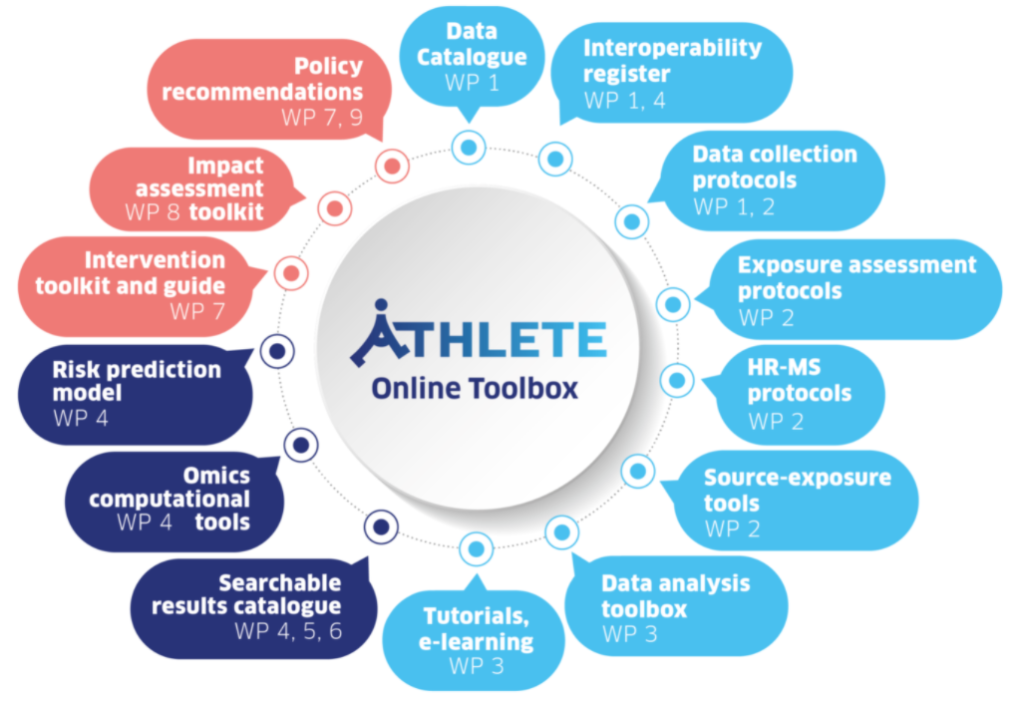HEAL calls on European Commission President Ursula von der Leyen to commit to protecting people’s health from the triple crisis during her second term in a letter. HEAL urges her to safeguard and strengthen the EU climate and environmental acquis for better health, and accelerate on the zero pollution path, including for the foreseen reform of the EU chemicals law REACH.
A new overview article published in Environmental Epidemiology, the Official Journal of the International Society for Environmental Epidemiology (ISEE), offers a comprehensive overview of the Advancing Tools for Human Early Lifecourse Exposome Research and Translation (ATHLETE) research project. ATHLETE follows 80,000 pairs of mothers and children across Europe in order to answer key questions about the health effects of early-life exposure to environmental hazards.
Each day we are exposed to a number of pollutants and other hazards via our diet, the products we buy, our lifestyle and the environment in which we work and live. The totality of exposures over a lifetime, from conception to adulthood, is called the Human Exposome. Research into the Exposome is groundbreaking because researchers are simultaneously studying the diversity of environmental exposures and the health outcomes from pregnancy up to childhood. As a result, they have the potential to answer key questions about the development of disease.
Multidimensional and data-rich studies into the Human Exposome nevertheless have many challenges and have highlighted the urgent need to develop new advanced tools and data analysis approaches. This is where ATHLETE comes into play. The overview article, published in October 2021, sees researchers behind the project describing exactly why studying the Exposome from the earliest stages of life presents an important opportunity towards lifelong disease prevention, and how this can be achieved.
Martine Vrijheid, Coordinator and Principal Investigator of the ATHLETE project, explains: “ATHLETE’s research into the Human Exposome may just be the key to a more holistic policy action to lifelong disease prevention, including within the EU’s Green Deal and Chemicals Strategy for Sustainability.”
“We are following over 80,000 pairs of mothers and children across Europe to measure exactly how health conditions can develop as a result from exposure to pollutants and other hazards in our everyday environment. This data will be assembled in an online toolbox to highlight opportunities for preventative policy action against harmful pollution.”
About the ATHLETE research project:
ATHLETE is an EU-funded research project that aims to better understand how our environment can impact human health from pregnancy to adolescence by studying the Human Exposome. It brings together 23 partners from 12 countries, including research institutes, universities, national public and environmental health institutes, and civil society groups.
The research on the Human Exposome carried out by ATHLETE is paramount to understand the pathways associated with environmental exposures and the development of adverse health effects such as high blood pressure, lower birth weight, obesity, decreased lung function, and brain development. To achieve this, ATHLETE is following over 80,000 pairs of mothers and children from 12 countries across Europe to measure exactly how the Exposome impacts us in the early stages of life, and what can be done to prevent this from happening [1].
ATHLETE’s research focuses on health outcomes that are known to be linked to noncommunicable disease risk in later life and that represent prevalent health end-points in children, including brain development, the cardiometabolic system and the respiratory system.
The general objective of ATHLETE is to develop a toolbox of exposome data, tools and results that will lead to:
- A better understanding of the health effects of the Exposome during the most vulnerable life stages, using longitudinal cohort studies that span from pregnancy to adolescence.
- The design of interventions to limit our exposure to environmental hazards and, by doing so, improve our personal exposome.
- Creating state-of-the-art and openly accessible tools to measure, analyse and interpret exposome data and translate new knowledge into policy and practice.

To achieve its objectives, the ATHLETE project is structured into three key areas that contain nine Work Packages (WP):
- Exposome data and analysis tools
- WP1: Fair data infrastructure
- WP2: Exposure science tools
- WP3: Exposome data analysis toolbox
- Longitudinal exposome evidence
- WP4: Biological pathways from the exposome to health and disease
- WP5: In-utero exposome and early organ development
- WP6: Longitudinal exposome-health trajectories into adolescence
- Knowledge translation tools
- WP7: Interventions to improve personal exposome impact
- WP8: Health and economic impact of the exposome
- WP9: Dissemination and exploitation towards policy interventions
The European Human Exposome Network
ATHLETE is part of the European Human Exposome Network (EHEN), the world’s largest network of projects studying the impact of environmental exposure on human health. Bringing together 126 research groups from 24 countries, EHEN combines nine large-scale projects funded under Horizon 2020, the EU Framework Programme for Research and Innovation. These projects each address unique issues related to the Human Exposome, such as exposures to air quality, noise, chemicals, urbanisation, and related health impacts. Together, the network aims to better understand how various environmental factors can impact our health and well-being, starting as early as conception and pregnancy.


